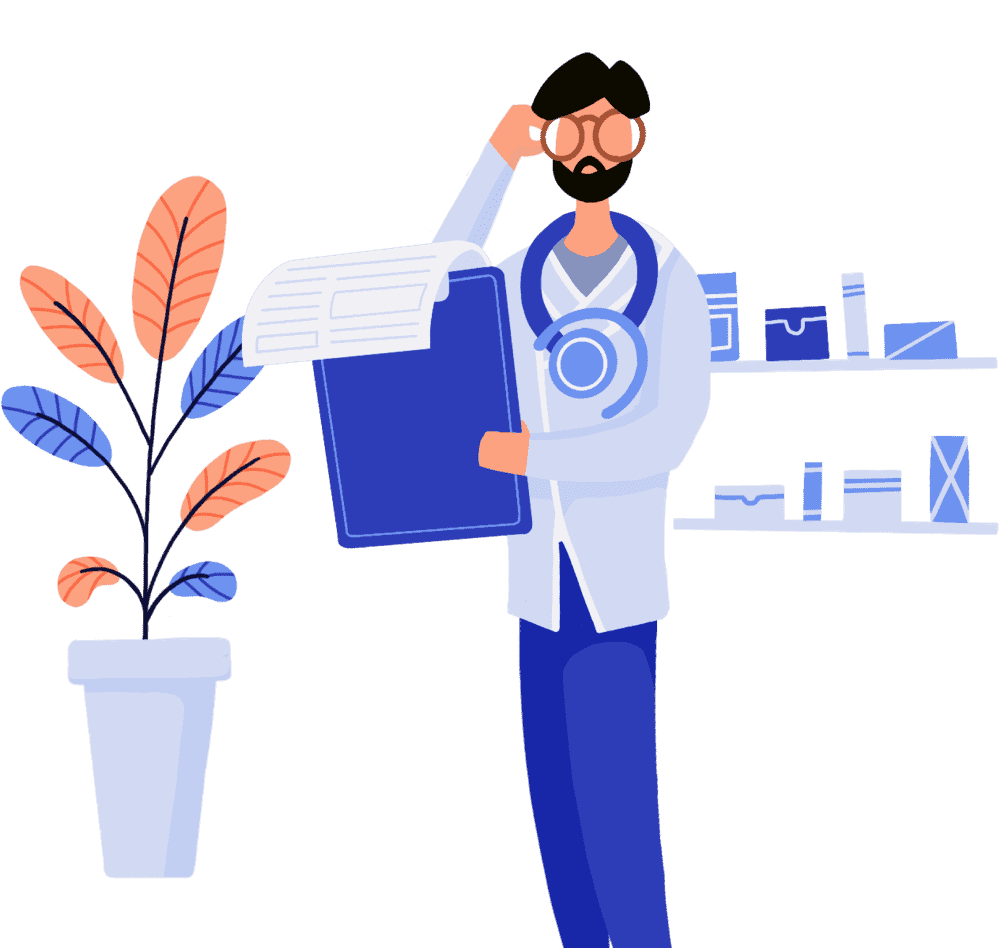NAD+ is now in Stock - From as low as £10.79 per Dose - Start your NAD+ journey today
- Home
- Sexual Health
- Chlamydia Treatment
Chlamydia Treatment
Chlamydia is a sexually transmitted infection (STI) and is the most common type in the UK. Passed on through unprotected sex, this infection can affect both men and women and can often come with no symptoms. However, if you do get symptoms then this could include pain when urinating, unusual discharge or pain in the stomach and/or testicles.
If left untreated, Chlamydia can lead to further health problems and issues with fertility down the line, so shop our effective medications for successful results.
More Information
What is Chlamydia?
Chlamydia is the most common type of sexually transmitted infection (STI) in the UK and is most common among young people (aged 16 - 25). The infection is spread through unprotected sex (vaginal, anal, oral and sharing sex toys) and its symptoms include vaginal/penile discharge, mild stomach pain (for women) and pain or irritation in the testicles and penis (for men).
However, the reason that Chlamydia can be troublesome is because it very regularly causes no symptoms, meaning that a lot of men and women have the infection without realising. Not only does this lead to the disease being passed on and spread to more people, but Chlamydia can also cause other health complications. In women, the infection can cause pelvic inflammatory disease, stop the fallopian tubes from working properly and eventually cause infertility. In men, it can cause similar fertility problems, affecting sperm production and making conception much harder.
What causes Chlamydia?
The infection may be passed from person to the person through sexual intercourse, but the actual cause is a bacterium called “Chlamydia trachomatis”. This bacteria, when passed from one person to another, can live inside the vagina, penis and rectum, and can then be found in a man’s semen and a woman’s vaginal fluids (hence, how it is passed during sex).
Although it only takes coming into contact with the infection once in order to acquire it, you heighten your risks by having unprotected sex with multiple different partners. You should get yourself tested regularly; once a year or each time you have sex with a new partner.
How can I treat Chlamydia?
Chlamydia Medication
The first step in treating Chlamydia is identifying it. The test is a simple cotton swab, inserted into the vagina or urethra to see if your bodily fluids test positively for the bacteria. You can get these tests done at your local GP or sexual health clinic.
Once you have tested positively for Chlamydia, the treatment is a simple dose of antibiotics; either a one-off dose of Azithromycin or 2 Doxycycline tablets taken every day for one week. These treatments are highly effective and are both available to purchase on UK Meds, using our trustworthy and confidential service.
If you have been treated for Chlamydia, you should ensure that you follow preventative measures in order to avoid contracting it (or another STI) again. This includes practising safe sex (by using condoms), avoiding the sharing of sex toys, and getting tested regularly.
If your doctor recommends prescription only medications, we have a range of options available.
More Information
Medication delivered the next day from UK pharmacies
Choose the right treatment
From the comfort of your own home or out on the go, choose the treatment you require from our extensive range.
Complete an online consultation
A vital part of our process, your online consultation will be similar questions to that of a GP. Quick and easy, we guarantee privacy and confidentiality.
Delivered discreetly
One of over 100 of our partner regulated UK pharmacies will dispense and ship the treatment to you in discreet packaging.
Rated out of 5 on 
Really easy to go through the order process, kept up to date with delivery process which arrived quickly. So much easier than going through your GP.
Great
very prompt and keeps you informed
Delighted that UK Meds are now using Royal Mail, Ordered on Monday and received medication Tuesday afternoon. A huge improvement on the woeful service from Yodal!
Rated 4.6 out of 5 based on 6589 reviews
Here to help you
Our Customer Service is available Monday to Friday 9am - 5pm. If you need urgent assistance, do not use this service. Call 111, or in an emergency call 999. Visit our help section




